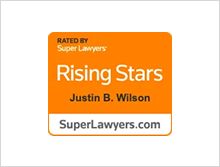Justin Wilson
Senior Attorney
We Offer Complimentary Consultations
If you are facing DWI, assault, sex crime, or other criminal charges, get in touch with My Dallas Criminal Lawyer to learn about your legal options.
My Dallas Criminal Lawyer » Criminal Defense Timeline and Process
The attorneys and staff at My Dallas Criminal Lawyer understand that each criminal case requires a customized approach, and we are committed to providing our clients with a legal strategy that best meets their specific needs. Each case is unique, and we are completely dedicated and committed to providing clients with a legal defense strategy that provides the best possible outcome.
Even though each client’s journey through the criminal justice system is unique to them, there are general processes and timelines that impact everyone in a similar manner.
At My Dallas Criminal Lawyer, we believe that knowledge and preparation drastically cut down on the stress our clients experience as we navigate the criminal justice system together.
The process and timeline below apply to many, but not all, criminal cases. We offer complimentary consultations to discuss the unique circumstances comprise your situation.
AWARDS AND ACHIEVEMENTS








Whether police officers make an on-view arrest or obtain an arrest warrant, once a person goes into police custody, the next step in the journey is securing that person’s release on bond.
After police take someone into custody, the arrested person will be booked in, fingerprinted, and photographed. Usually within 24 hours, the arrested person will see a magistrate. A magistrate is a judge who sets bond and bond conditions.
When setting bond and bond conditions, the magistrate will consider factors such as the nature of the accused offense, the arrested person’s criminal history, and whether a specific person or society will be at risk if the person is released from jail.
When police arrest someone of a low-level misdemeanor and that person has no previous criminal history, the magistrate may release the arrested person on a Personal Recognizance (“PR”) Bond. With PR bonds, no money must be paid, but the magistrate may still impose bond conditions.
If the magistrate believes that a PR bond is not appropriate, the magistrate will set a surety or cash bond. With surety or cash bonds, someone must pay a sum of money to secure the arrested person’s release from jail. You may use a bail bond company to pay the bond, or you may pay the bond in cash. Bail bond companies collect a fee for paying the arrested person’s bond and will often require the arrested person to abide by certain conditions on top of the magistrate’s bond conditions.
If you pay the bond amount in cash, you will receive a cash bond refund after the case reaches a final disposition, but you must pay the full amount of bond and be able to survive without that money for several months or even years.
Once the arrested person sees the judge for magistration, the arrested person will have their bond amount and bond conditions that will go into effect upon release.
The judge may also enter a Magistrate’s Order of Emergency Protection, which goes into effect immediately, regardless of whether the arrested person posts bond or not.
Sometimes the bond amount may be too high for the arrested person or their loved ones to pay. Other times bond conditions or an emergency protective order make living under those court orders unworkable.
Fortunately, Texas law provides us the opportunity to modify the bond amount and the conditions imposed by the magistrate.
If the bond amount is unaffordable, a criminal defense attorney may file a motion to reduce the bond.
The court with jurisdiction over the matter will schedule a hearing.
At bond reduction hearings, Texas law relaxes the rules of evidence, allowing prosecutors to present a copy of the probable cause affidavit to the judge instead of calling witnesses to testify. Prosecutors will also read the arrested person’s prior criminal history for the judge to hear.
The defense will present testimony, usually from the arrested person’s family members or other individuals with knowledge of the arrested person’s financial circumstances.
Since a bond reduction hearing is about balancing public safety with the arrested person’s ability to afford bond and return to normal life, we do not focus these hearings on the strength or weakness of the case.
Instead, we offer testimony to provide the judge with an accurate assessment of our client’s financial capabilities, and we do everything possible to help the judge feel confident that if our client posts bond, our client will abide by all bond conditions, will not pose a threat to any member of society, and will appear at all future court dates as required.
In some cases, a magistrate may order an arrested person to stay away from their home, to have no contact with a protected individual, to wear a GPS monitor, to remain in certain locations, or to use alcohol- or drug-monitoring devices. Depending on our client’s life circumstances, these conditions may create an unworkable situation. When that happens, we can file a motion to modify bond conditions.
The court with jurisdiction over the matter will schedule a hearing. Similar to bond reduction hearings, Texas law provides for relaxed rules of evidence, allowing prosecutors to offer police reports rather than call witnesses to testify. We will offer testimony from family members or even our clients to show the court that the court-ordered conditions are unsustainable for one reason or another. We argue that the burden placed on our client is unjust, that the modifications we are requesting will not endanger any protected persons, and we offer evidence of the steps our client is taking to make sure they do not wind up in this situation again.
If the judge grants the modifications we have requested, the judge will sign a modified order, and our clients will be required to comply with the modified order until the order expires.
If the arrested person violates a bond condition or protective order, depending on the violation, the arrested person could be arrested or called back to court for a bond violation hearing. At bond violation hearings, the judge will hear evidence and may sanction the arrested person or revoke bond altogether.
We receive a notice to appear when our client’s case has been filed and assigned to a court. The first appearance, or arraignment setting, will usually take place about three or four weeks from the day we receive the notice to appear.
You should always plan to appear in person at your first court date.
At the first court date, we will receive access to download discovery. If the prosecutors have an initial plea offer, we will receive that as well. We will get a new court date, and most of the time, that is all that takes place at a first appearance. With DWI cases, the court may provide amended bond conditions requiring an ignition interlock device when blood alcohol concentration is greater than or equal to 0.15.
After the first appearance, we will usually have at least one announcement setting where we meet with prosecutors to plea negotiate face-to-face.
Each county is different, and sometimes each court within a county will have different rules on the number of court dates we have and whether our clients must appear or not.
Eventually, you will have a plea-or-set-for-trial setting. Most courts will require you to be present at that court date, and that is the day the court will expect you to enter into a plea agreement with the prosecution or say that you want to set the case for trial.
Between the first appearance and plea setting, your attorney will review discovery, communicate plea offers, and discuss strategy with you.
At My Dallas Criminal Lawyer, we always strive for our clients to go into their plea setting well-informed and prepared to make the decision that is right for them.
Your attorney may be in charge of the strategy, but you have the ultimate decision-making authority about whether to accept a plea agreement or reject it and go to trial.
If you go to trial, there will be a pretrial setting where you must appear in person, usually a few days to a week prior to the trial setting. At the pretrial date, we find out whether we will go to trial on our scheduled trial date or get reset to a later date.
Regardless of whether your case has been dismissed, you were placed on probation, or sentenced to incarceration, a record of your arrest will exist and may appear in a background check.
Depending on how your case was disposed, you may be eligible for an expunction or a nondisclosure.
At My Dallas Criminal Lawyer, we do everything possible to make our clients eligible for expunctions or nondisclosures so that they can move forward with peace of mind.
Before making a decision about accepting a plea agreement or going to trial, we want our clients to have a clear understanding of what outcomes will make them eligible for an expunction or nondisclosure and what outcomes will not. We help our clients evaluate their options and weigh the risks and rewards of accepting a plea deal or going to trial.
Even though a criminal case can be highly stressful, we routinely set our clients up for expunctions and nondisclosures so that their journey through the criminal justice system can remain in the history books.
Find Us Near You. Visit One of Our Offices.
To ensure we’re available to meet with you and provide the attention your case deserves, all in-person appointments must be scheduled in advance. We do not accept walk-ins, as our team may be in court or out of the office. Please contact us to schedule a time before visiting.
| Our team is available by phone 24/7 | Office Hours |
|---|---|
| Monday | 8AM – 5PM |
| Tuesday | 8AM – 5PM |
| Wednesday | 8AM – 5PM |
| Thursday | 8AM – 5PM |
| Friday | 8AM – 5PM |
| Saturday | Closed |
| Sunday | Closed |
| Our team is available by phone 24/7 | Office Hours |
|---|---|
| Monday | 8AM – 5PM |
| Tuesday | 8AM – 5PM |
| Wednesday | 8AM – 5PM |
| Thursday | 8AM – 5PM |
| Friday | 8AM – 5PM |
| Saturday | Closed |
| Sunday | Closed |